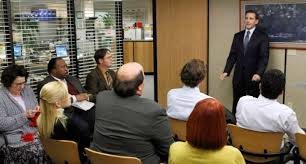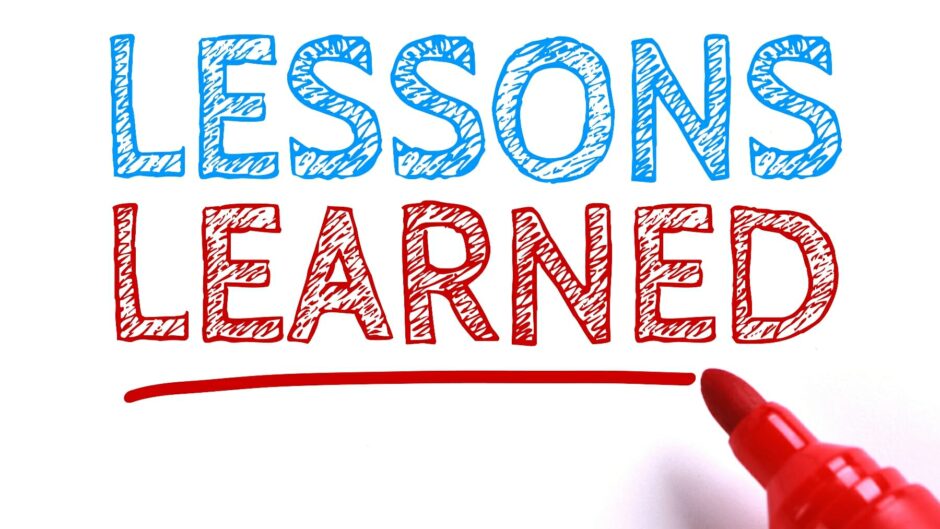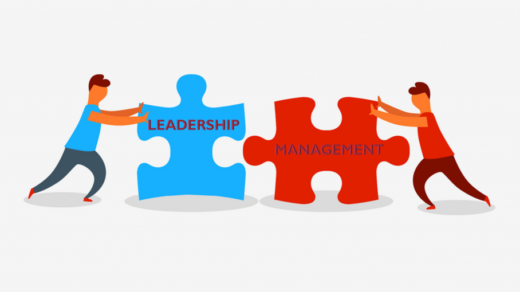
There are many times that I wish that someone told me which pitfalls to avoid when you are a leader. Or which ladders to climb. I have been through the School of Hard Knocks (graduated with honors, thank you very much) and I think it only fair that I share some of my lessons learned in leadership.
❶ The best learning happens by failing.
I have written about noble failure before. It is human nature to remember the failures (and the often gloss over the successes). Noble failure is about trying something new and learning from the failure so that you can improve next time. I would like to take that thought one step further and say that the failure doesn’t need to be limited to a fundraising idea — it can be a management style, an interaction, or a written document. Truly, you can learn from any of your failures.
❷ Build your network.
People who come into my office often laugh at the Rolodex that sits beside my monitor. The Millenials think it is an ancient artifact and the Traditionalists are in awe. I have found over the year that the folks who are referred to me by other people tend to be the most successful relationships. I wrote about this Lovecat mentality and sharing your contacts here. A good fundraising leader will know great lawyers, accountants, database people, consultants, community members, and, of course, fundraisers. Your network can never be too big, so keep making (and taking) those introductions.
Part of building a network, however, is building a good team. There is a great saying (I don’t know who came up with it, but it has been repeated by many leaders) that says “If you’re the smartest person in the room, you’re in the wrong room“. Your team should complement your skillset, not duplicate them. If you aren’t a details person, make sure you have a task-oriented person on your team. If your writing could use some help, ensure you have a writer.
❸ Never stop learning.
I once had a colleague that used to say that you can learn something from anybody — everybody has something to teach. This is so very true and is often used in anecdotal learning. I would also suggest that you expand your horizons with some formal learning — be it a course, a seminar, or a book. If I get one take away from a seminar that I attended that I could implement in my life, I consider that a success — anything more than one take away is a bonus. As the world is changing, so too must your knowledge.
❹ Control what you can and let go of the rest.
This is still a work in progress for me. Being the Type A personality that I am, I find it challenging to accept mediocrity or failure (even though the best learning happens by failing, right?)
Not every obstacle that I encounter is the hill I want to die on. In the grand scheme of things, it is likely inconsequential. Often times, when there are blips in the plan, there are few around you who actually realize that the plan has hit a bump. Most of the audience (donors, staff, colleagues) have no idea. This ties in quite nicely with the concept of self-compassion.
❺ Make yourself invaluable to the Organization.
I should preface this sentiment with the notion that everybody is expendable. The organization that you are currently with (likely) existed before you and will (most likely) exist after you.
That being said, you want to be seen as a major artery in the heart of the organization. You may not be the one who beats the heart, but you can aspire to be the one that brings the needed blood supply to the heart.
❻ Be authentic.
Donors, staff, and colleagues can see through fictitious authenticity. Fundraising isn’t one of those careers that you can “fake it until you make it”. Authenticity is a central component to trust and once that trust is breached, it is hard (if not impossible) to regain. Many large benefactors can spot a disingenuous approach from a mile away. Aside from being insincere, it is also disrespectful.
❼ Always give credit and take responsibility.
Unless you are a one-person shop without volunteers, it is highly unlikely that a successful fundraising event/mailer/solicitation occurred solely through your own efforts. The best way to foster a group dynamic with your team is to give credit to others. So many times, the unsung heroes are those that are behind the scenes, entering data, or putting prize packages together. While it may be a nod to the leader’s skills that the event/mailer/solicitation was successful, it is often the result of a strong team. I have been blessed to work with some pretty awesome folks and it is through their hard work and dedication that the successes come.
The flip side of that coin is when things go wrong. As a leader, the buck stops with you. If someone on your team messed up, it is still your responsibility — did you not give them proper training? Were they inadequately supervised? Was the project not explained well?
❽ Believe in the data.
I tend to be an evidence-based person. Just because someone says something to be true, I try to find empirical evidence to back that up. In all of the job postings that I have occupied, I track donations by the month (both volume and value) and graph it out over time. The data will show trends and allow the supervisor to make intelligent projections. (The more years’ worth of data, the more accurate the projections can be — two years does not make a trend).
Just because you think that a Direct Mail is the best piece of prose that the organization has ever put out doesn’t make it so. Perhaps the data will show that this particular piece doesn’t get the results that one hoped for. With the belief in data comes the adage of test, test, test.
❾ Everything in leadership begins and ends with trust.
We are in the profession of trust. The donors must trust in us that we will steward their donation appropriately. Your team must trust that you have their backs and have a vision for the department/organization. The end users/clients must trust that you will respect their confidentiality and work to make their world a better place.
Trust is the basis for fundraising. Without it, you would be better off to close the fundraising department and just buy lottery tickets with the salaries you would have otherwise paid.
❿ Stretch yourself.
If you succeed year-over-year with few blips in the road, I would suggest that you are not stretching yourself. You have become complacent — a curse in the fundraising world.
I had a colleague once that used to budget 90% of the revenues that were brought in (over a 3-year rolling average) so that they could look good to the “boards and bosses”. This is commonly referred to as sandbagging. Unless they knew of a particular reason that their revenue would be off, they were doing a disservice to the organization.
With stretching yourself comes ingenuity. Perhaps you want to try a new way of segmenting your database donors. By going outside of your comfort zone, you may just find a new way to achieve your goals.
All to say…
In conclusion, these ten leadership lessons learned were lessons that I wish someone had shared with me 20 years ago (not that I would necessarily have had the maturity then to have listened).
I’m always happy to have a (virtual) coffee or adult beverage to discuss these thoughts with the new “up and comers”.
Until next week,
L’chaim
jack




